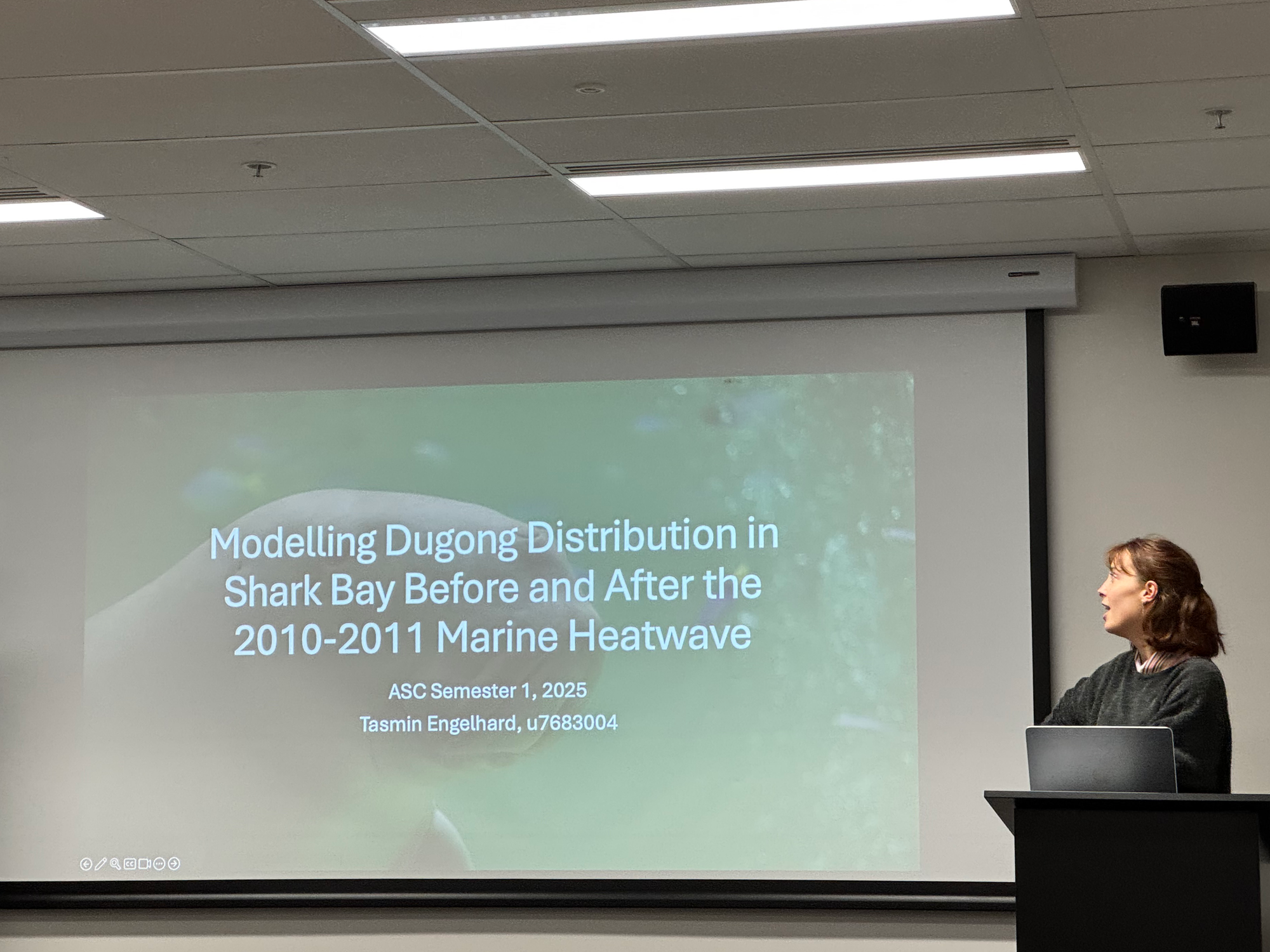Our Lab's PhB Student Examines Dugong and Seagrass Dynamics in Shark Bay
PhB student Tasmin Engelhard has completed a research project examining dugong and seagrass distribution in Shark Bay before and after the 2010 marine heatwave.

Third-year PhB student Tasmin Engelhard has recently completed and presented a semester-long research project done at the Sequeira Lab! Tasmin's project was linked to the Sequeira Lab's Gathaagudu Animal Tracking (GAT) Project and focused on the movement datasets of 11 dugongs we tracked in two fieldwork campaigns between 2023 and 2025.
She investigated the relationship between dugong and seagrass distribution before and after the heatwave that took place in the summer of 2010, in Shark Bay, Western Australia, which pushed the water temperatures to more than 3°C above average. This event caused long-term ecological shifts, particularly to the seagrass meadows that form vital habitat for dugongs, which is why it is so important to investigate changes in dugong behaviour across the period before and after the heatwave.
Tasmin focused the development of statistical models that followed her learnings from the course 'Introduction to Quantitative Biology' convened by our lab leader Assoc Prof Ana Sequeira at The Australian National University.
The course focuses on providing students with a good introduction to the R programming language and to basic statistics analyses that for the bases of statistical modelling.
Tasmin has done a brilliant job in completing the project and was able to provide valuable insights for understanding dugong movement that may be build-up on to inform conservation strategies, particularly in the face of environmental change.
Congratulations to Tasmin on successfully completing and presenting her PhB research project to the School!